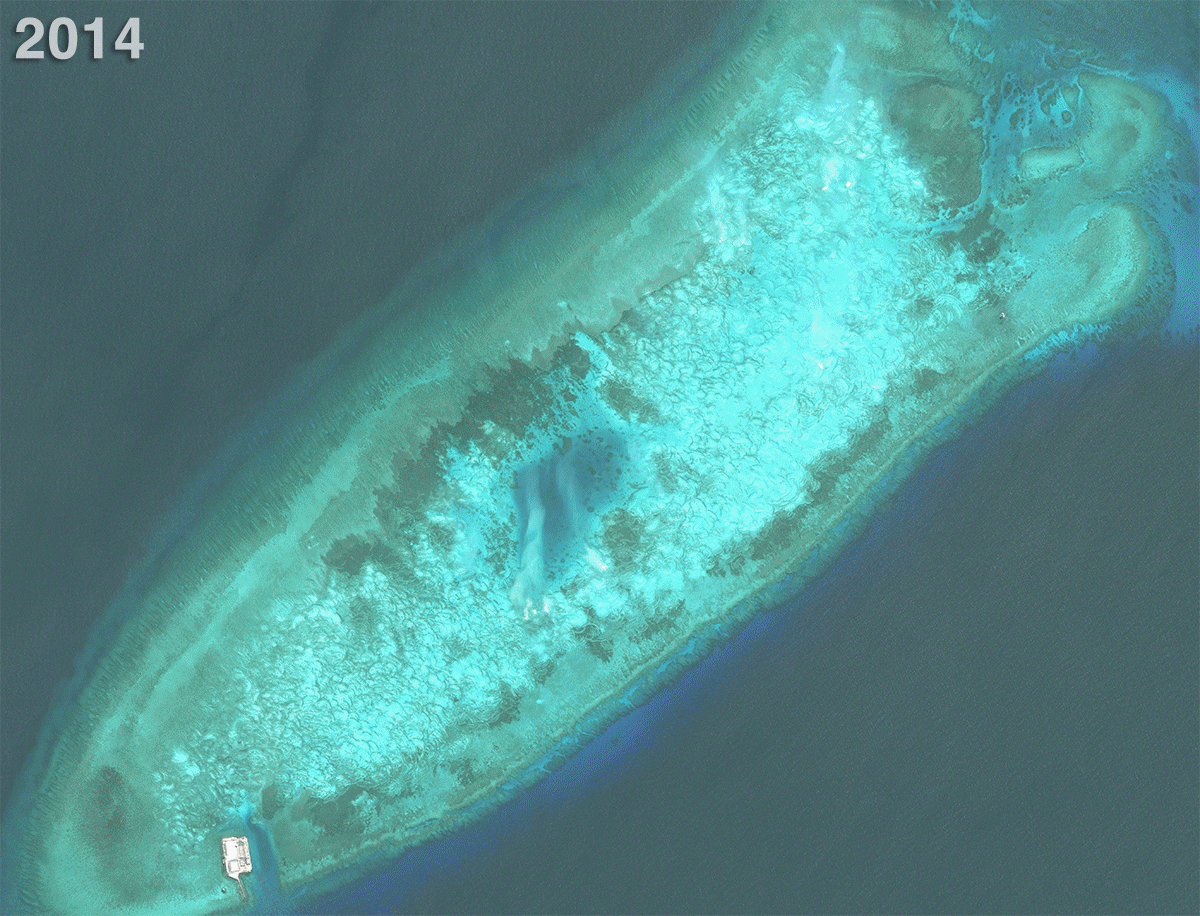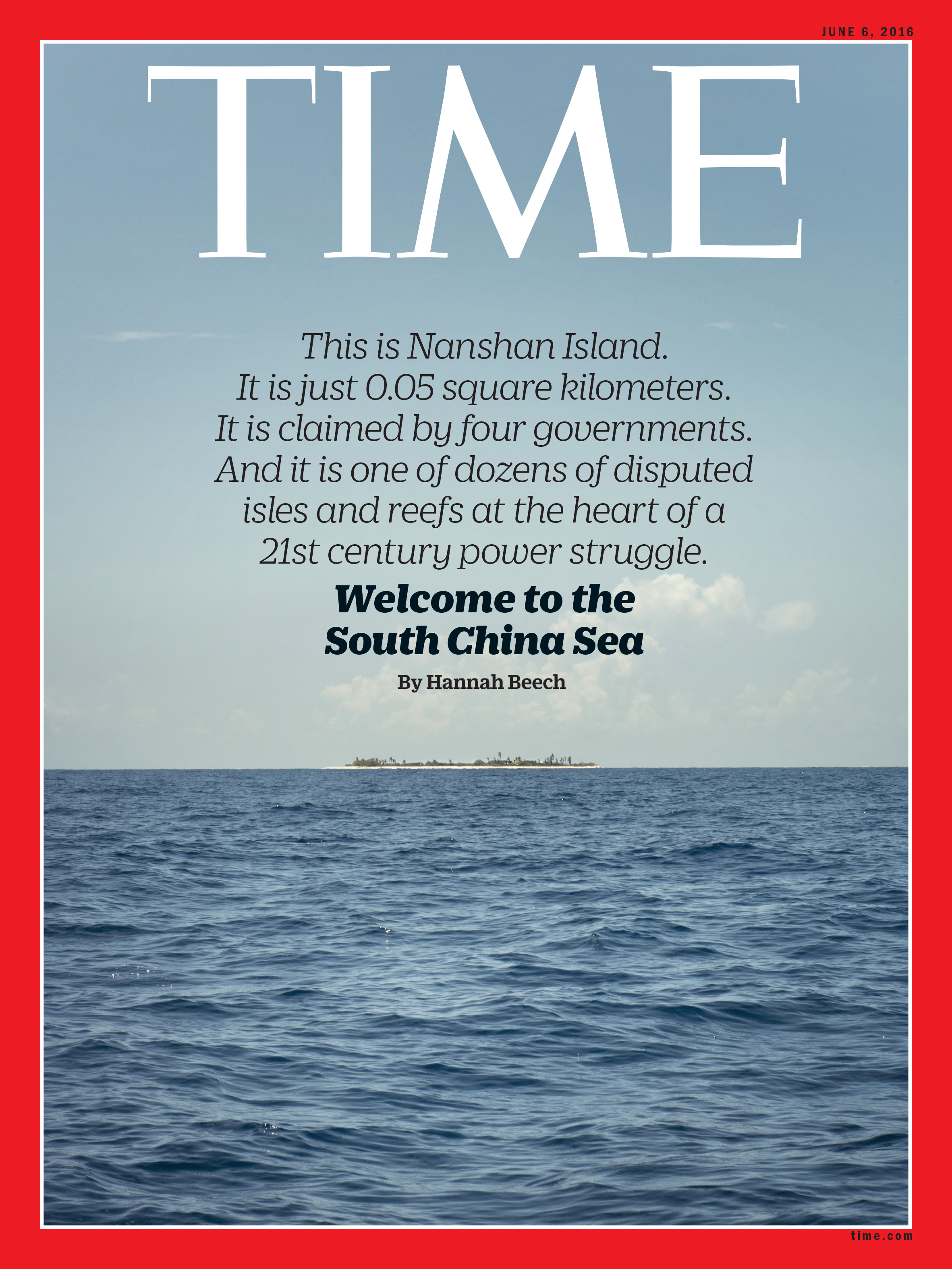
It was there — and then it wasn’t. On Tuesday evening, Foreign Ministers from the Association of Southeast Asian Nations (ASEAN) performed a diplomatic magic trick. First, after a meeting with their Chinese counterpart in southwest China, they issued a statement on the rising tensions in the South China Sea, parts of which are claimed by six regional governments. The language, for a body that prides itself on consensus-making and group photos of grinning dignitaries, was stern: “We expressed our serious concerns over recent and ongoing developments, which have eroded trust and confidence, increased tensions and which may have the potential to undermine peace, security and stability in the South China Sea.”
The nation that was eroding “trust and confidence” in the strategic waterway was unnamed. But China, which has embarked on an ambitious island-building campaign in disputed waters, and has blamed the U.S. for masterminding any regional conflict, was mentioned elsewhere in the statement. “We also cannot ignore what is happening in the South China Sea,” the communiqué read, “as it is an important issue in the relations and cooperation between ASEAN and China.”
While that sentence might seem anodyne, it implies a repudiation of China’s preferred approach of negotiating bilaterally with each rival claimant, rather than facing the united front of a regional body. The ASEAN statement also cautioned against “militarization” in the South China Sea, a clear rebuke against China’s defense buildup, which includes not only the new islands complete with runways that can welcome military jets, but also missile batteries, radar facilities and a coast guard that regularly comes into conflict with fishing boats from other littoral nations.
But, less than three hours after the ASEAN statement was released by the Malaysian Foreign Ministry, a spokeswoman retracted the document, saying that “urgent amendments” were needed. By the end of the evening, Chinese Foreign Minister Wang Yi had made his own statement refuting the contention that the South China Sea dispute was a sticking point between his country and the regional body as a whole.
“This isn’t an issue between China and ASEAN,” he said. “Cooperation between China and ASEAN is far greater than any specific discord, including the South China Sea dispute.”
That may be. China, after all, is ASEAN’s largest trading partner. One senior regional diplomat told TIME that, in the busy minutes after the ASEAN statement went out, Beijing had lobbied regional ministers to make the embarrassing backtrack. Beijing’s foreign policymakers, he said, had specifically pressured Laos, which is this year’s ASEAN chair, to force the statement’s recall. (ASEAN requires consensus among all of its 10 members to issue any statement.)
“When the dragon roars, the little countries need to stay away from the fire coming out of its mouth,” says the diplomat. “We have no choice but to acknowledge this political reality.”

A day later, and no new ASEAN statement has been issued — and it isn’t clear whether one would be forthcoming at all. Instead, individual announcements from various Southeast Asian countries have dribbled out. The diplomatic mess recalled an incident in 2012 when, for the first time in ASEAN history, the group wrapped up a summit without a joint communiqué because of what was widely perceived to be Chinese pressure on Cambodia to avoid the sensitive South China Sea issue.
“This is turning out to be another fiasco in which ASEAN’s credibility has been damaged because of a lack of unity,” says Ian Storey, a senior fellow at the ISEAS-Yusof Ishak Institute in Singapore. “It really looks not only like ASEAN is in disarray but also that it lacks any backbone.”
The strategic contest in the South China Sea brings together a rising China that is more assertively claiming disputed territory; a U.S. that has long held sway over the Pacific; and five other regional governments that claim various bits of rock and reef. It’s a combustible mix, only heightened by an expected decision in the coming weeks from a U.N. tribunal that could well undercut China’s claims over more than 80% of the contested waters. (The other claimants are Taiwan, the Philippines, Vietnam, Brunei and Malaysia.)
Beijing has said it believes the Permanent Court of Arbitration does not have jurisdiction over the case, which was lodged by the Philippines, another claimant. The Hague tribunal has no ability to enforce its decision but Beijing has been courting international support ahead of the judgment. China’s Foreign Ministry now says some 60 nations support its perspective, including such disparate countries as Gambia, Belarus and, notably, Laos. (Some countries, like Fiji, that were originally named as part of China’s South China Sea bloc, have since distanced themselves from Beijing’s pronouncements.) Over recent weeks, Chinese state media has regularly accused the U.S. of using the South China Sea issue to foment regional instability and prevent China’s rise.
Meanwhile, the G-7 nations last month cautioned against rising maritime tensions in the South China Sea and issued a veiled rebuke against China. “We reaffirm the importance of states’ making and clarifying their claims based on international law,” the communiqué read, “refraining from unilateral actions which could increase tensions and not using force or coercion in trying to drive their claims.”
At a late May security summit in Singapore, U.S. Secretary of Defense Ashton Carter spoke out against China’s buildup in the waterway, through which more than $5 trillion in trade flows each year. “China’s actions in the South China Sea are isolating it at a time when the entire region is coming together and networking,” he said. “Unfortunately, if these actions continue, China could end up erecting a Great Wall of self-isolation.”
The response from Chinese Admiral Sun Jianguo was spirited. “We do not make trouble, but we have no fear of trouble,” he said in Singapore. “China will not bear the consequences, nor will it allow any infringement upon its sovereignty and security interests or stay indifferent to the irresponsible behavior of some countries in and around the South China Sea.”
Joint statements from ASEAN, it turns out, are not much trouble at all.
More Must-Reads from TIME
- Why Trump’s Message Worked on Latino Men
- What Trump’s Win Could Mean for Housing
- The 100 Must-Read Books of 2024
- Sleep Doctors Share the 1 Tip That’s Changed Their Lives
- Column: Let’s Bring Back Romance
- What It’s Like to Have Long COVID As a Kid
- FX’s Say Nothing Is the Must-Watch Political Thriller of 2024
- Merle Bombardieri Is Helping People Make the Baby Decision
Contact us at letters@time.com